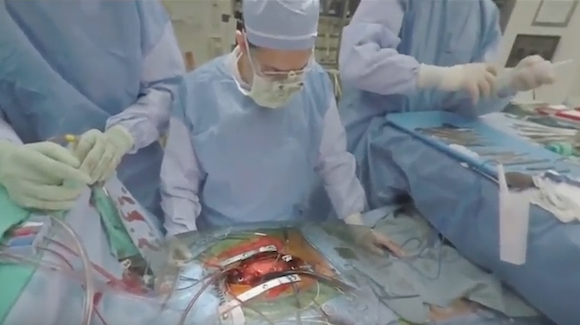Casopitant added to ondansetron improves prevention of postop nausea
Reuters Health • The Doctor's Channel Daily Newscast
Women are more prone than men to postop nausea and vomiting (PONV), and the risk of emesis is increased with gynecologic procedures and breast surgery, as well as abdominal surgery, note Dr. Joseph Pergolizzi Jr., with Johns Hopkins University in Baltimore, Maryland, and colleagues at 43 centers in 11 countries.
The authors go on to explain that multiple receptors are involved causing PONV, and that prevention may be improved with combination treatment. Neurokinin subtype 1 receptor antagonists have antiemetic activity, and “casopitant mesylate (GW679769) is a potent and selective neurokinin subtype 1 receptor antagonist that is readily absorbed after oral administration.”
The team conducted a phase 3 study of casopitant in combination with ondansetron in 484 women at high risk for PONV. They were given oral casopitant 50 mg or a placebo an hour before their operation and standard IV ondansetron 4 mg immediately before anesthesia induction.
The primary outcome of the study was complete prevention of PONV (no retching, vomiting or rescue therapy) in the 24 hours following surgery. The response rate was 68.7% with combination antiemetic treatment compared with 58.7% with ondansetron only (p=0.03), according to the report.
The difference in complete response rates in the two arms of the study at 24-48 hours was not significantly different (70.0% vs 63.4%, respectively), the researchers found.
Adverse events were similar in both groups, but constipation and hypotension were reported by more patients in the combination group than in the monotherapy group. Specifically, 17 patients in the casopitant plus ondansetron group and 10 in the ondansetron-only group had hypotension.
In discussing the results, Dr. Pergolizzi and colleagues write: “The significant protection against PONV noted in patients receiving casopitant in combination with ondansetron observed in this study is additionally notable for occurring in a high-risk population in whom PONV is anticipated in up to 80.0% of cases in the absence of effective antiemetic therapy.”
Funding for the study was provided by GlaxoSmithKline plc. As of last report, marketing applications for casopitant have been withdrawn because of the need for further safety data.
Arch Surg 2011;146:201-206.









